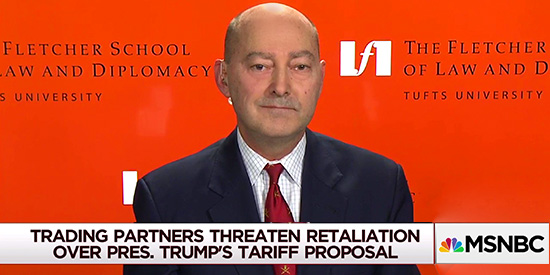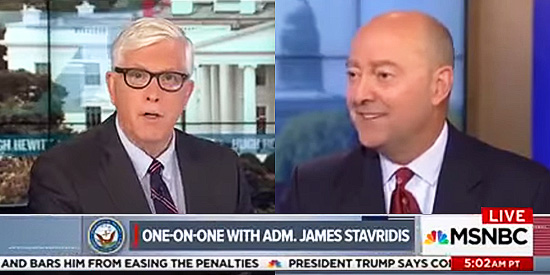DECEMBER 2019 MEDIA
Reacting to the New York Times story about Navy SEALS allegations about Chief Eddie Gallagher
Admiral Stavridis’s interview on MSNBC 12/27/19
Geopolitical risks to the economy
Admiral Stavridis’s interview on CNBC 12/27/19
What are the chances that North Korea’s Kim Jong Un has “played” President Trump?
An excerpt from Admiral Stavridis’s interview with Brian Williams on MSNBC’s 11th Hour 12/23/19
The U.S. “Space Force” is an idea whose time has come.
Admiral Stavridis’s OPED in Bloomberg Opinion 12/23/19
May the Force be with you. Talking about the establishment of the U.S. “Space Force.”
Admiral Stavridis’s Interview the Hugh Hewitt Show on the Salem Radio Network 12/19/19
Discussion of the Afghanistan papers, China, the NATO summit and “strategery”
Admiral Stavridis’s Interview on the Ross Kaminsky Show – KHOW Radio – Denver 12/13/19
Hong Kong Protests Could Spark a Stronger U.S.-China Accord – A golden opportunity for containment and cooperations
Admiral Stavridis OPED in Bloomberg Opinion 12/12/19
Discussing responses following the Pensacola Naval Air Station shooting and reports of a lack of candor from U.S. officials regarding Afghanistan
Admiral Stavridis’ Interview on the Brian Kilmeade Radio Show 12/11/19
Despite the Pensacola Shooting, It’s a Good Thing for U.S. to Train Foreign Militaries
Admiral Stavridis’ OPED on Time.com 12/9/19
Challenges to the US from Iran, North Korea and China
Admiral Stavridis’ interview on “Cats Roundtable” 12/8/19
Discussing the NATO Summit
Admiral Stavridis’ interview with The Cipher Brief 12/4/19
Discussing China and Vietnam
Admiral Stavridis’ interview with Hugh Hewitt, Salem Radio Network 12/4/19
The importance of the upcoming NATO summit
Admiral Stavridis’ appearance on MSNBC’s Andrea Mitchell Reports 12/2/19
WRITTEN
BELOW ARE SOME OF THE ADMIRAL’S MOST MEMORABLE PUBLIC COMMENTARIES
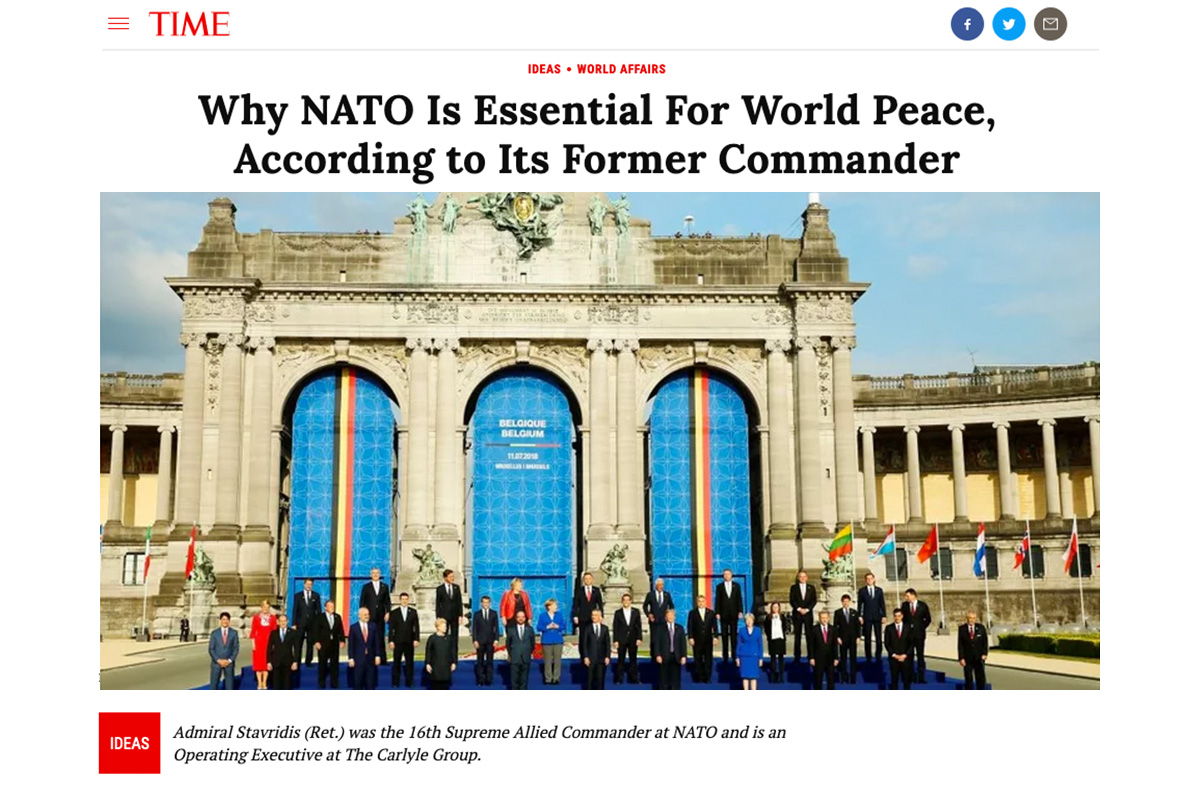
Very few Americans could find tiny Montenegro on a map. Fewer still could offer a cogent description of the differences between Slovenia and Slovakia.
Most can’t name the three Baltic countries. Yet thanks to Article 5 of the North Atlantic Treaty Organization’s charter, which was signed 70 years ago in Washington, every American is bound by law to defend with blood and treasure each of those nations, and 22 others to boot.
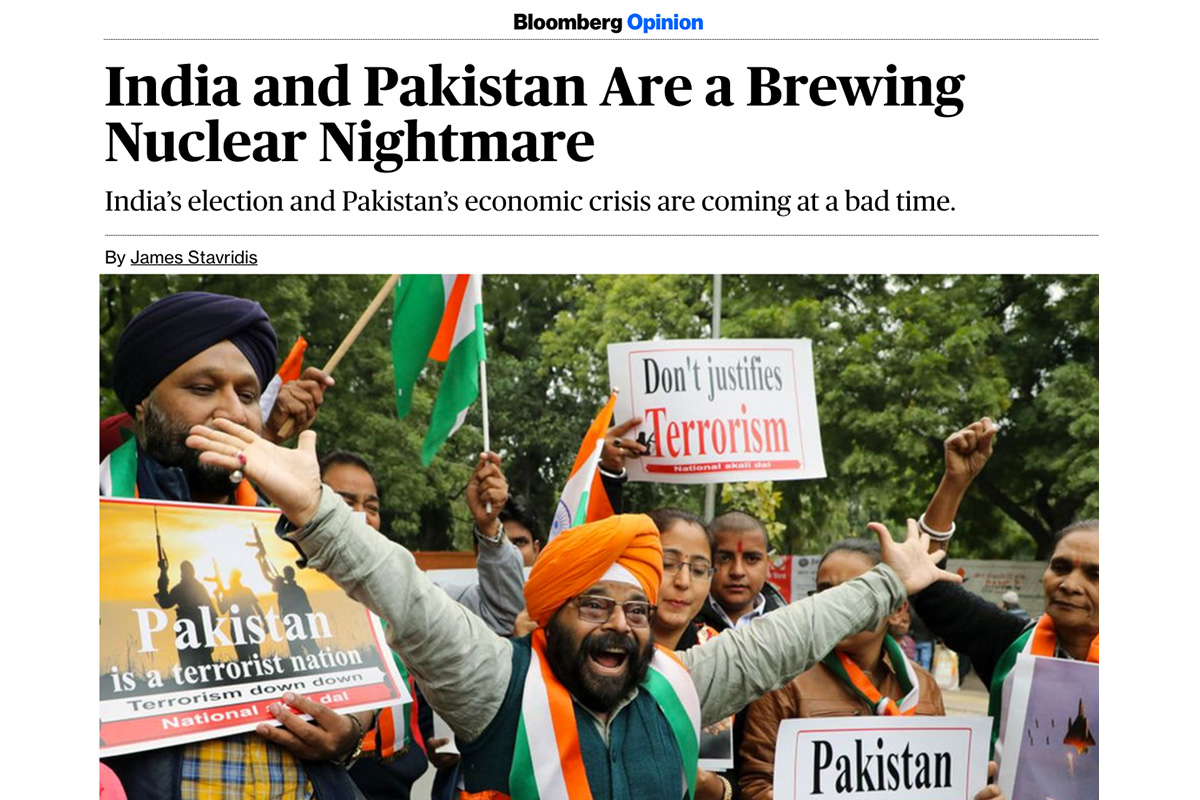
While India and Pakistan seem to have stopped bombing one another, the causes behind the cross-border tensions aren’t going away any time soon. The two nations are nuclear-armed; have large conventional armed forces; have had four serious wars since they became independent in 1947; and have enormous cultural and religious antipathy. This is a prescription for a disaster, and yet the confrontation is flying below the international radar – well below North Korea, Brexit, China-U.S. trade confrontations, Iran and even the “yellow vests” of France. A full-blown war in the valleys and mountains of Kashmir is a very real possibility.
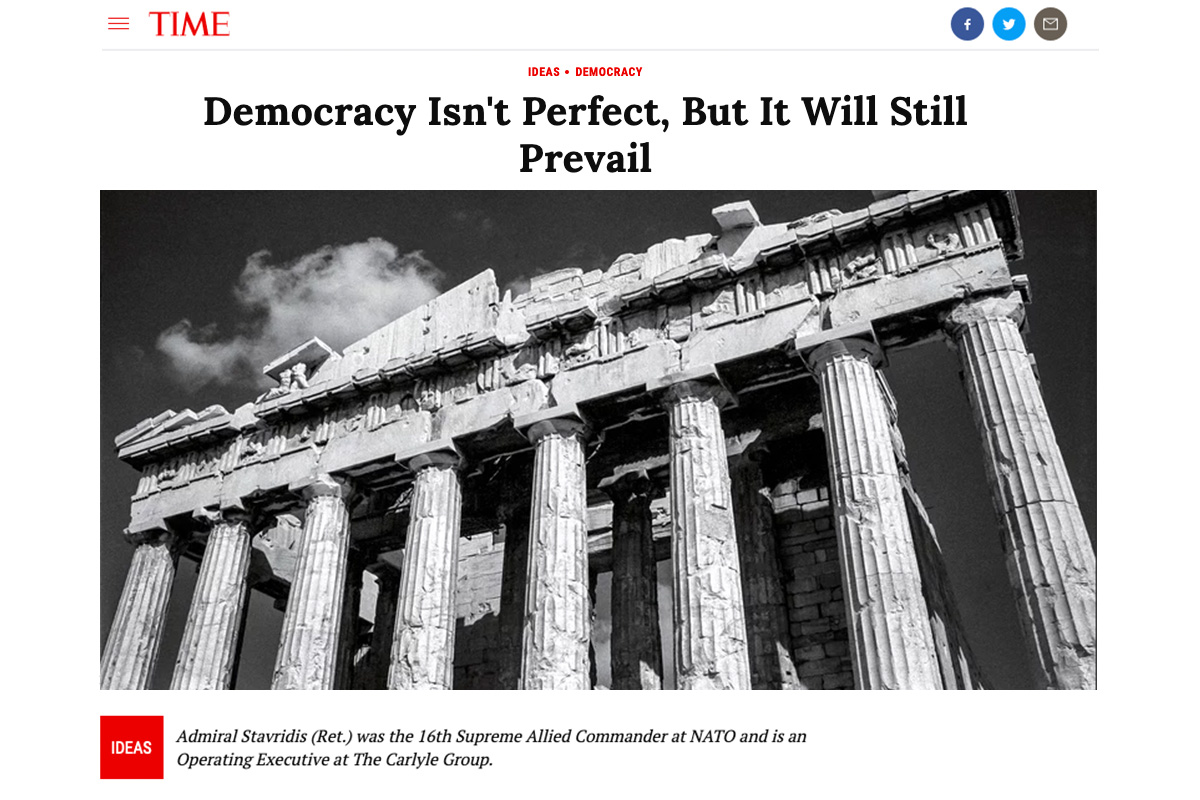
I spent much of my early adult life on American warships around the world defending democracy against one of its great 20th century enemies: global communism. The Cold War represented a rare kind of conflict in the span of human civilization, one not between states or princes, but between ideologies. On one side was centralized authoritarian control; on the other, democratic government of, by and for the people.
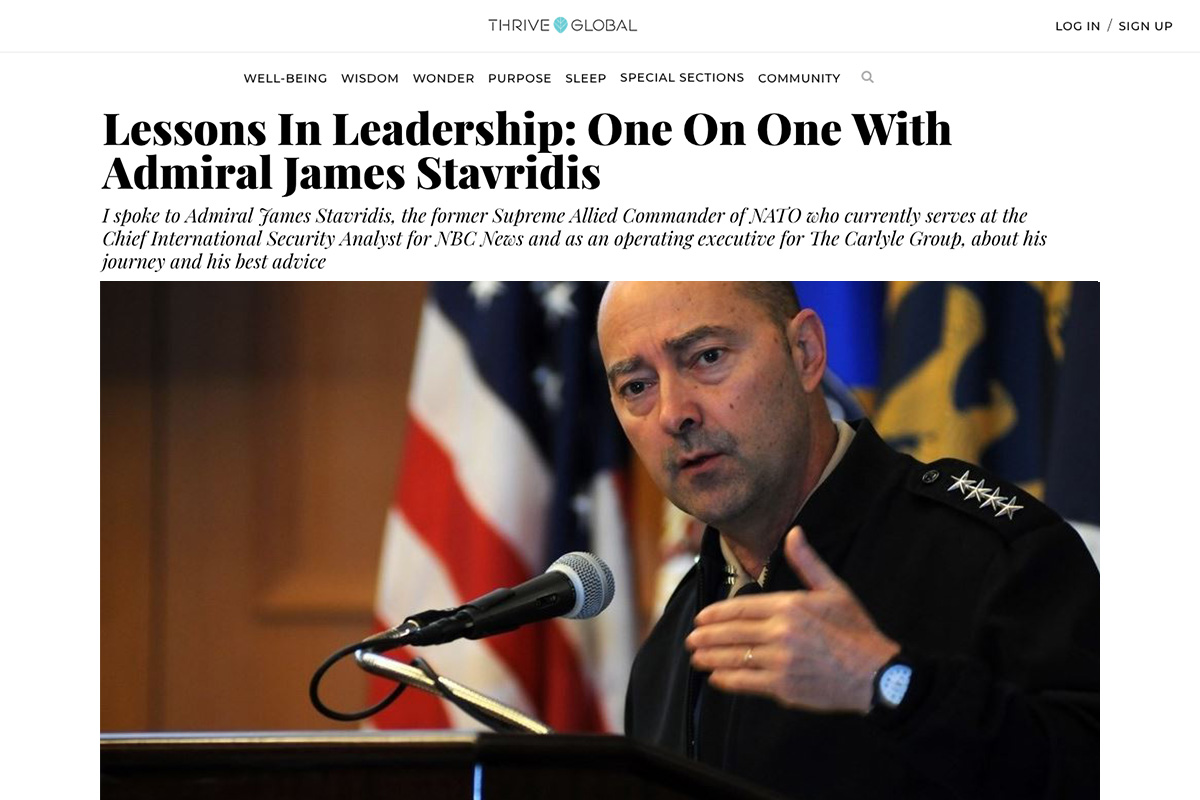
Adam: Thanks again for taking the time to share your thoughts on leadership. First things first, though, I am sure readers would love to learn more about you. What is something about you that would surprise people?
Adm. Stavridis: I am a very good cook, because I grew up around terrific cooks. My grandfather came here from Greece as a refugee in the early part of the 20th century and – like many Greek-Americans, immortalized in My Big Fat Greek Wedding – opened a restaurant, the Downtown Diner in Allentown, Pennsylvania. So cooking is in my blood and I love make big Mediterranean dinners – risotto, cassoulet, tagine, paella, roast lamb, anything from the Mediterranean and the Levant.
TV/RADIO
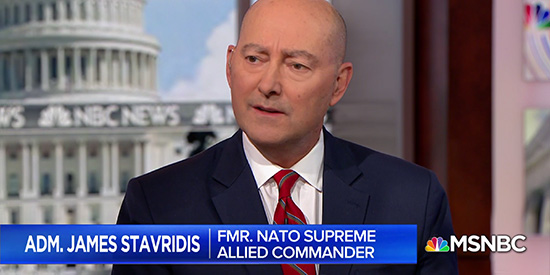
Adm. Stavridis: President Trump’s prediction ISIS territory will fall within days is ‘a huge mistake’



